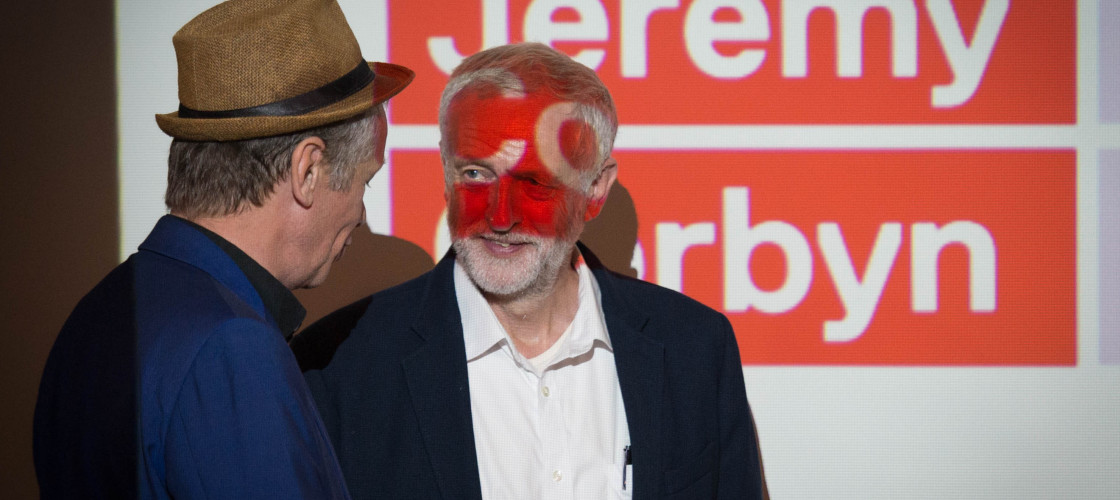Edit
Corbyn & Digital Politics
Last year, is that all, Jeremy Corbyn issued a Digital Democracy manifesto. It seems to be written by a small team which is odd given their commitment to crowd sourcing new politics. I and some friends think it could have been better.
- In the 2016 Labour Leadership election, Jeremy Corbyn and Richard Barbrook produced a "Digital Democracy" manifesto, calling for Universal Broadband, a national wikipedia for educational material, public funding gets public domain, a right to publish, net neutrality, fair intellectual property laws, co-operative digital platforms, employee protection for suppliers to digital platforms, a national (but virtual id card), a weak commitment to open source, a digital charter of rights guaranteeing historic rights and especially the right to privacy, and electronic town halls.
- The .pdf document URL generates a storify error (as does my wiki mirror) so my mirror host for the actual manifesto is here.... at http://wiki.davelevy.info/corbyn-on-digital/ …
- Paul Bernel wasn't so keen, taking objection to the Digital Passport and expressing some sadness that yet again a Labour policy document had failed to address and counter Labour's 20 year (or longer) supine delivery of civil liberty restraint at the behest of the security services.
 Corbyn’s digital meh-nifesto is too rooted in the past to offer much for the future – Paul BernalWhile the Labour Party recently launched their Digital Democracy Manifesto with as much fanfare as they could muster, the reaction to it could be safely described in social media terms as “meh”. Th…
Corbyn’s digital meh-nifesto is too rooted in the past to offer much for the future – Paul BernalWhile the Labour Party recently launched their Digital Democracy Manifesto with as much fanfare as they could muster, the reaction to it could be safely described in social media terms as “meh”. Th…- I am pretty much with Paul in that it ignores the development of thinking around civil liberties and its conflict with the anglosphere's security services once secret plans to "master the internet". Freedom of Speech, the right to privacy, freedom of association and the right to a fair trial are all under threat from so-called democratic governments; many campaigners have developed demands and thought about what a good internet looks like. This document doesn't really build on them.
- My attempt to summarise this newer Left thinking is best stated in the following two articles.
 Digital Liberty, a baselineI am preparing to write a blog on Digital Liberty and the Parties' manifesto positions. I was looking to see how I categorised the issues so I could create a summary view and I found the motion that was the basis for my previous submission on policy.
Digital Liberty, a baselineI am preparing to write a blog on Digital Liberty and the Parties' manifesto positions. I was looking to see how I categorised the issues so I could create a summary view and I found the motion that was the basis for my previous submission on policy. Digital Liberty, Labour’s Policy?I have today, posted a submission to Labour's YourBritain site, arguing for the Labour Party to support the EDRi's charter of digital rights. I repeat my categorisation of the charter as supporting citizenship activism, defending privacy from corporate and state surveillance, promoting equality befo...
Digital Liberty, Labour’s Policy?I have today, posted a submission to Labour's YourBritain site, arguing for the Labour Party to support the EDRi's charter of digital rights. I repeat my categorisation of the charter as supporting citizenship activism, defending privacy from corporate and state surveillance, promoting equality befo...- In the second, (see above of these posts) I repeat my categorisation of the EDRi charter as supporting citizenship activism, defending privacy from corporate and state surveillance, promoting equality before the law and seeking to ensure a democratically regulated internet. I suggest that this builds on two of the last Labour Government’s greatest democratic reforms, the Freedom of Information (FOI) Act and the Human Rights Act (HRA).
- David Golumbia looks at the use of language by the Cyberlibertarians and the trap that their positive semantics sets for the Left. They too often define freedom as a freedom for the rich and corporations. The Left must set its own goals.
 Cyberlibertarians’ Digital Deletion of the LeftTechnological innovation does not inherently promote the left's goals.
Cyberlibertarians’ Digital Deletion of the LeftTechnological innovation does not inherently promote the left's goals.- Golumbia bookmarks Barbrook's Californian Ideology, Barbrook's anti-rightist manifesto which I have not yet read.
- The Californian IdeologyTHE CALIFORNIAN IDEOLOGY. by Richard Barbrook and Andy Cameron ( August 1995) See also Louis Rossetto's Rebuttal of the Californian Ideology ...
